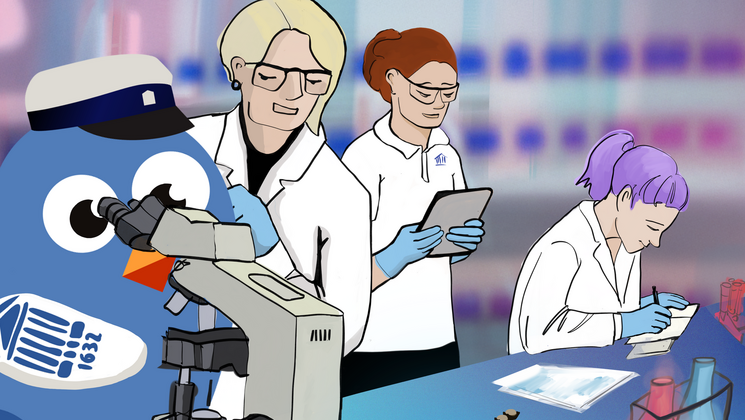Veebiseminar: elav pärand ja kestliku arengu toetamine

Tartu Ülikooli vaimse kultuuripärandi rakendusuuringute UNESCO õppetool kutsub veebiseminarile. Seminari korraldab LIVINDi projekt, milles õppetool osaleb.
A Resource and a Source for Change? Living heritage and actions for sustainable development.
LIVINDi projekti veebiseminar 21. novembril 2023, kell 15–17
On palju näiteid sellest, et elav kultuuripärand on seotud kestliku arengu püüdlustega. Võtame või traditsioonilisted teadmisted isemajandamise ja oma toiduainete kasvatamise kohta või tavad, mis aitavad kaasa vastastikuse usalduse loomisele ja säilitamisele kohalikes kogukondades.
ÜRO kesltiku arengu tegevuskava ja sellest tulenevad säästva arengu eesmärgid puudutavad igaüht, kes soovib, et meie plaanet jääks elamiskõlblikuks. Igapäevaseid tegutsemismustreid ei ole aga alati nii lihtne jätkusuutlikkuse eesmärkidega ühildada.
Veebiseminaril vaatleme säästvat arengut elava pärandi kontekstis. Läheneme teemale eri vaatenurkadest: elava pärandi kaitsmine kui igapäevatöö, analüütiline lähenemine seireandmete põhjal ning kriitilnet arutelu kultuuri ja kultuuripärandi rollist kestlikku arengu tegevuskavas ja kaugemalgi. Esinejate paneeldiskussiooni ajal saate esitada küsimusi ning jagada oma seisukohti ja kogemusi.
Veebiseminari korraldab LIVIND koostöös vaimse kultuuripärandi ja säästva arengu UNESCO õppetooliga Prantsusmaalt (CY Cergy Paris Université).
15.00 Opening and introductions. Chiara Bortolotto, UNESCO Chair on Intangible Cultural Heritage and Sustainable Development, CY Cergy Paris Université; Leena Marsio, Senior Advisor, and Elisa Kraatari, LIVIND Project Coordinator, Finnish Heritage Agency
15.15 Presentation. Agenda 2030 and the SDGs: Whose sustainability and sustainability of what?
John Crowley, PHGD Group
15.40 Presentation. The SDGs, periodic reporting and the agency of indicators. Chiara Bortolotto, UNESCO chair in Intangible Cultural Heritage and Sustainable Development, CY Cergy Paris Université and Séverine Cachat, Expert for the Ethnological and Intangible Heritage Committee, French Ministry of Culture.
Introduction:
Global frameworks such as the SDGs or the audit mechanisms established within the ICH Convention build on indicators. Assumed to be neutral, technical and universal, these frameworks are in fact performative, political and cultural. It is through them that SD is to be imagined, managed, deployed and performed globally. They shape the global conception and management of sustainable development, potentially obscuring its essence. Energies and resources that could be creatively devoted to safeguarding taking into account a diversity of understanding of sustainability are instead diverted in the implementation of these normative framework . At the same time, however, they offer opportunities to shift State policies’ focus from a quest for international visibility and prestige granted by listing to more concrete issues. The Livind project is an example of this. Our discussion draws from experiences supporting state and sub-state stakeholders in designing and executing ICH strategies, reporting, and projects.
16.05 Comments to the presentations. Jorijn Neyrinck, Expert of the Intangible heritage workshop, Flanders, Belgium; Katriina Siivonen, University Lecturer, Finland Futures Research Centre (FFRC), University of Turku.
16.15 Panel discussion: Living heritage as a resource for local communities and an agent for sustainability transition. John Crowley, Chiara Bortolotto, Séverine Cachat, and Katriina Siivonen.
The Panel discussion moderator: Jorijn Neyrinck
17.00 Webinar ends.
John Crowley is the author of the so-called Zero Draft for Culture Goal, preparing the way for SDG 18 for culture. Crowley worked for UNESCO from 2003 to 2021 leading the programmes on ethics of science and technology, global environmental change and management of social transformations. He founded PHGD in 2020 to bring together a portfolio of interests in sustainable energy and environmental regeneration.
Chiara Bortolotto holds the UNESCO chair in Intangible Cultural Heritage and Sustainable Development, at CY Cergy Paris Université. Her research explores the social life of the UNESCO Convention for the Safeguarding of the Intangible Cultural Heritage addressing in particular the intersection between heritage and sustainable development. Her work is based on an ethnography of the UNESCO policy world where she explores the performative power of administrative apparatuses and the role of human emotions in the making of global governance.
After obtaining a Phd in social and cultural anthropology, Séverine Cachat directed the French Center for Intangible Cultural Heritage from 2011 to 2021 and the Maison des Cultures du Monde from 2017 to 2021. Today a consultant, she is a member of the global facilitators' network for the 2003 Convention (UNESCO) and an expert for the Ethnological and Intangible Heritage Committee (French Ministry of Culture).
Jorijn Neyrinck is a cultural anthropologist. She’s the coordinator of the NGO Workshop intangible heritage in Belgium, and facilitator for the UNESCO 2003 Convention. Jorijn takes on a cultural broker role in the field among living heritage actors, policy makers, civil society, and academia. Recent commitments: coordinating the work on the webdossier ICH and sustainable tourism, co-organizer for Wiki Loves Living Heritage (2023), vice-chair of the Flemish UNESCO Commission, Steering member of the European Network of Focal Points for the UNESCO 2003 Convention (ENFP), member in the Evaluation Body of the 2003 Convention (2019-2023), and lead partner for the ICH and Museums Project (IMP) in Europe.
Katriina Siivonen is University Lecturer in Futures Studies and Adj. Prof. in Cultural Heritage Studies in University of Turku. She is vice-chair of the Expert Panel for Sustainable Development in Finland and co-chair of Working Group on Sustainable Development in the European Environment and Sustainable Development Advisory Councils Network (EEAC Network). She has been the chair of the Advisory Board of the implementation of the UNESCO Convention for the Safeguarding of the Intangible Cultural Heritage in Finland (2014-2022). She has led numerous participatory futures research projects during last 20 years. Currently she is co-leading three transdisciplinary research projects: the Finnish LAB in the Horizon Europe project IN SITU, the project ECOCRIN funded by Business Finland, and project SISU funded by the Academy of Finland / Strategic Research Council. She is expert in ethnography, participatory methodology in futures studies, identities, intangible cultural heritage, heritage futures and cultural sustainability transformation.
By registering you will get the event link and later have access to the recording of the webinar with subtitles (in English).





